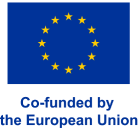Employment and competence pathways in the Wellbeing Services County of North Ostrobothnia, Pohde
These diverse pathways promote employment at Pohde, job retention, integration, and better matching between jobs and job seekers.
Funders


Project information
Project duration
-
Funded by
European Structural Funds
Funding amount
1 098 795 EUR
Project coordinator
Other university or unit
Unit and faculty
Contact information
Contact person
Researchers
Project description
Finland’s social and healthcare sector (SOTE) is experiencing a critical labour shortage, which threatens the availability, quality, and safety of essential services. In North Ostrobothnia, POHDE employs approximately 18,000 professionals, yet faces growing challenges in recruitment and staff retention. Immigrants, partially work-abled individuals and unemployed jobseekers represent groups whose skills and motivation could significantly contribute to easing the labour shortage. However, meaningful inclusion in the workforce requires development of tailored and supportive pathways to employment.
Pohteen työllistymis- ja osaamispolut project responds to these challenges by creating a comprehensive operational model designed to promote inclusion, recognise diverse competence, and support integration into the social and healthcare sector.
The project is implemented through a collaborative partnership between Pohde, the University of Oulu, Oulu University of Applied Sciences (OAMK), Diaconia University of Applied Sciences (DIAK), and the Education Consortium OSAO. This multidisciplinary cooperation brings together healthcare systems, academic research, vocational education, and field-based training to co-develop sustainable solutions.
The University of Oulu’s Central Contribution
The University of Oulu leads the development of a mentoring programme and related training modules designed to promote workplace integration, psychological safety, and supervisory support. The mentoring programme includes training components for jobseekers, supervisors, and onboarding staff. The university also focuses on the design and development of personalised learning and employment pathways, including creating supportive structures for professional competence recognition and practical integration into healthcare environments.
The University of Oulu ensures that these models are grounded in empirical research and aligned with national and regional workforce strategies.
Project Actions
Collaborative Development of Inclusive Pathways
The project’s activities are organised across five interlinked work packages, each of which contributes to a unified goal: building a future-ready, inclusive workforce model for the Finnish healthcare sector.
The University of Oulu works in partnership to co-develop competence and employment pathways that respond to the specific needs of target groups.
Project development is guided by a continuous feedback approach, allowing tools and practices to be refined in real time. This ensures that the operational model is not only theoretically robust but also practically relevant for the changing dynamics of the field.
Project Outcomes and Societal Impact
The primary outcome of the project is a functional and scalable operational model that includes client profiling, tailored competence and employment pathways, and a supportive mentoring programme. The model is designed to improve the employment, re-employment, and retention of immigrants, partially work-abled individuals and jobseekers within the social and healthcare sector.
At a broader level, the project supports a cultural shift within the SOTE field: towards more inclusive, tolerant and responsive ways of working. It strengthens leadership capabilities, particularly in competence and work ability management, and promotes organisational cultures that value diversity and adaptability.
More information about the project (in Finnish): Employment and competence pathways in the Wellbeing Services County of North Ostrobothnia, Pohde